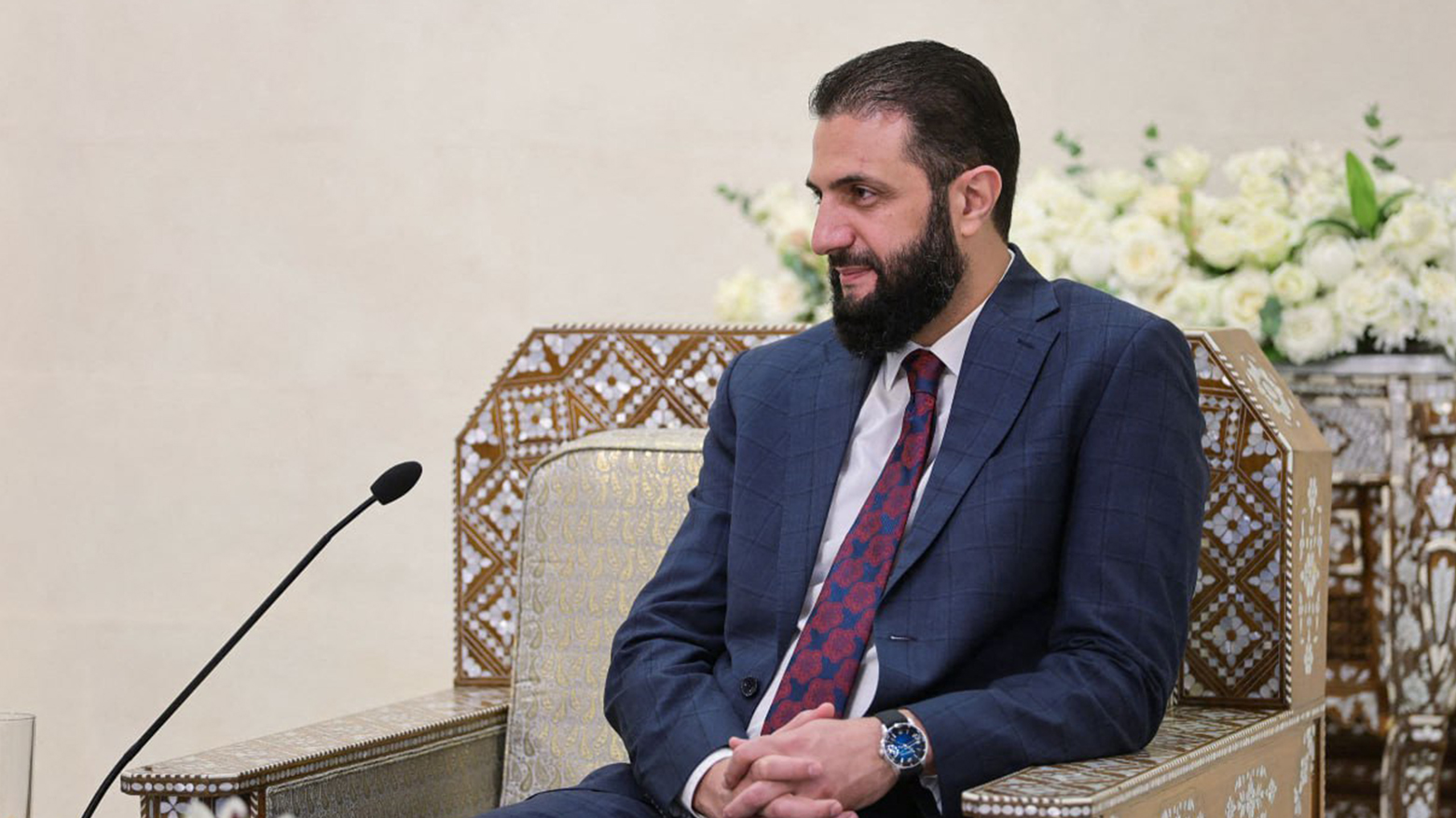Syrian President Says Security Talks with Israel Could Yield Results “in Coming Days”
Syrian President al-Sharaa says security talks with Israel could yield results "in coming days," ruling out normalization. A proposed deal, modeled on the Egypt-Israel treaty, would create demilitarized zones and a no-fly area in southwest Syria.

Erbil (Kurdistan24) – Syrian President Ahmed al-Sharaa said on Wednesday that negotiations with Israel aimed at reaching a security agreement may produce tangible results “in the coming days,” describing the prospective deal as a “necessity” for regional stability.
Speaking to reporters in Damascus, al-Sharaa stressed that any security agreement would have to guarantee respect for Syrian airspace, preserve the country’s territorial integrity, and fall under United Nations monitoring. He underscored that peace or normalization with Israel was “not on the table” at this stage, while noting that Washington was not pressuring Damascus to reach an accord.
The Syrian president revealed that the two sides had come within days of concluding an agreement in July, but the violent outbreak in Sweida province disrupted the process. He cautioned that it was too early to discuss the fate of the Israeli-occupied Golan Heights, pointing out that Israel’s actions contradict Washington’s declared policy of supporting a stable and unified Syria.
According to reporting by the U.S.-based outlet Axios, Israel recently presented Damascus with a detailed proposal for a new security agreement, including a map of proposed demilitarized zones stretching from southwest of Damascus to the Israeli border. The plan seeks to replace the 1974 disengagement accord, which collapsed following the downfall of the Assad regime and Israel’s subsequent occupation of the buffer zone on the Syrian side.
The proposal, modeled on Israel’s 1979 peace treaty with Egypt, divides the area southwest of Damascus into three zones with varying levels of demilitarization. Military forces and heavy weaponry would be barred from the strip adjacent to the border, though Syria would retain police and internal security units. The entire area would be designated a no-fly zone for Syrian aircraft.
In return, Israel has offered a gradual withdrawal from territories it has occupied in Syria in recent months, with the exception of an outpost on the summit of Mount Hermon, which Israeli officials insist must remain under their control in any future arrangement. A source familiar with the talks said the proposal effectively leaves Israeli positions unchanged, while imposing broad restrictions on Syria, including a buffer zone extended two kilometers deeper into Syrian territory.
Axios also noted that a core Israeli objective is the preservation of an aerial corridor through Syria to Iran, maintaining the option of launching future strikes against Tehran.
Israeli Strategic Affairs Minister Ron Dermer and Syrian Foreign Minister Asaad al-Shaibani were expected to meet Wednesday in London, alongside U.S. Special Envoy Tom Barrack, to discuss the proposal further. The trilateral session would be the third of its kind, following earlier rounds that showed progress but stopped short of an agreement.
The Trump administration has quietly facilitated the talks, adopting a markedly friendlier tone toward al-Sharaa than it maintained with his predecessor Bashar al-Assad. While Israel bombed Damascus in July, Washington has refrained from exerting pressure on Damascus regarding the negotiations.
Israeli Prime Minister Benjamin Netanyahu is reportedly exploring the possibility of meeting President al-Sharaa on the sidelines of the United Nations General Assembly later this month, though Israeli officials say the likelihood remains slim. Netanyahu confirmed on Tuesday that former U.S. President Donald Trump had invited him to the White House on September 29.
It was also reported that last Tuesday, Syrian government forces have withdrawn heavy weapons from the country’s south, a move confirmed by a military official on Tuesday amid Israel’s demand for a demilitarized zone and ongoing negotiations between Damascus and Tel Aviv.
According to AFP a Syrian military official confirmed: “Syrian forces have withdrawn their heavy weapons from southern Syria.” The official explained that the process began around two months ago, shortly after the eruption of deadly sectarian violence in the Druze-majority province of Sweida.
Observers note that while the talks remain fragile, the potential security agreement would mark a major turning point in Israel-Syria relations, reshaping the strategic map of the region after decades of hostility.